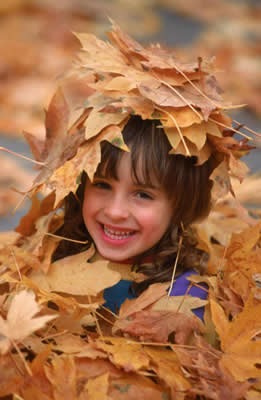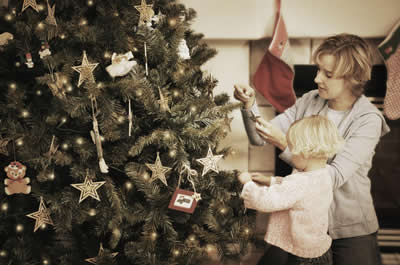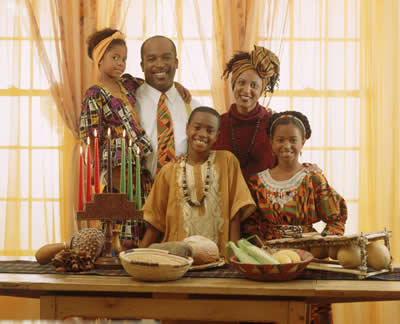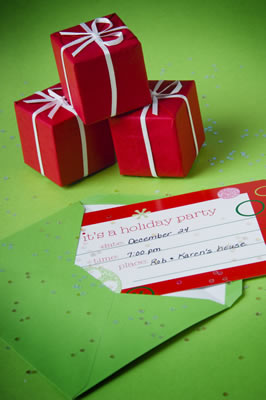|
Kentucky Autism Training Center
University of Louisville Autism Center
Kosair Charities Centre
1405 E. Burnett Ave.
Louisville, KY 40217
katc@louisville.edu
(502)852-4631
|
|
Save the Date |  | |
2012 Autism Institute
June 18, 19 and 20
Putting the Pieces Together through Collaboration: Bridges to a Brighter Future
University of Louisville Shelby Campus
Louisville, KY
Registration begins January 11, 2012
|
|
Upcoming Trainings
Webinars
11/21/11
Coping with Stress
12/7/11
Unspoken Social Rules for the Internet
Regional Workshops
Supporting Autism 24/7
March 5, 2012
Kentucky Dam State Park
March 23, 2012 Barren River State Park | | |
|
Autism and Religious Communities Poll

|
|
|
|
Featured KATC Resource Library Book
|  | |
Teaching Children with Autism to Mind-Read: A Practical Guide for Teachers and Parents
Patricia Howlin, Simon Baron-Cohen, Julie Hadwin
J. Wiley & Sons, 1999 -290 pages
The difficulties experienced by children with autism and related conditions in inferring the thoughts, beliefs, desires and intentions of others are well documented in numerous studies. It now seems that these deficits underlie many of the social and communication problems that are characteristic of autism. Teaching Children with Autism to Mind-Read explores the relationship of "theory of mind" deficits to other areas of children's functioning and describes existing experimental work that has attempted to enhance the skills associated with understanding others' minds. Drawing on their own intervention programme, and providing detailed information about the teaching materials and strategies they use, the authors provide practical guidelines for helping children with autism spectrum conditions to improve their understanding of beliefs, emotions and pretence. The authors tackle specific problematic issues including:
- how to interpret facial expressions
- how to recognise feelings of anger, sadness, fear and happiness
- how feelings are affected by what happens and what is expected to happen
- how to see things from another person's perspective
- how to understand another person's knowledge and beliefs
This easy-to-follow graded teaching guide is of particular relevance to special needs teachers, educational and clinical psychologists, speech and language therapists, and carers of children with autism spectrum conditions.
|
|
ASK KATC
|  |
Question:During the holidays, our family makes several trips to visit other family members. This always seems to frustrate my son with autism. Do you have some suggestions for preparing him for these trips?
Answer: Holiday travel can be difficult for anybody. Parents should first consider whether there are aversive qualities associated with traveling. Individuals may find car rides long and uncomfortable. Make sure to make frequent stops and provide reinforcement during travel. The rides may be perceived as more enjoyable if you give your child free access to a preferred DVD, magazine, or deliver a favorite snack while riding in the car. Consider making the destination more reinforcing for your child. Plan for preferred activities to occur at the new destinations. It may be helpful to prepare your child for travel by giving them a schedule of activities. These schedules can involve the use of a typical calendar, a picture calendar or a video rehearsal of upcoming events. Note that these preparation activities may not be helpful if your child finds the upcoming events aversive. Do you have a question to ask the KATC Field Trainers? Send your question to katc@louisville.edu. The question and answer could be featured in our next newsletter. Diandre Glover Thomas Insight on Autism, Editor |
|
|
|
Happy Holidays! In this newsletter, we are giving you ti ps, strategies, and warmth to get you through this holiday season. In addition to being professionals at the KATC, many of us have family and friends on the spectrum. We know the holidays can be tough; however, we try to see the silver lining and enjoy this special time with our loved ones. We wish you and your family a wonderful holiday season. ps, strategies, and warmth to get you through this holiday season. In addition to being professionals at the KATC, many of us have family and friends on the spectrum. We know the holidays can be tough; however, we try to see the silver lining and enjoy this special time with our loved ones. We wish you and your family a wonderful holiday season.
|
|
Introducing a Family Member with Autism During the Holidays
| |
by Lindsey Devries
 My first Thanksgiving back from college I begged my family to plan a nice "normal" Thanksgiving. I was bringing home David, a new boyfriend that I was very fond of, and wanted things to go smoothly. Before hand, I told David that my brother had autism and talked with him about my brother's interests and eccentricities. My brother and David hit it off and were soon deep in conversation about the latest Pixar movie. Suddenly, my brother announced "Did that David hit me?!" David immediately went pale and began explaining that he would never do such a thing. The family burst into laughter as I explained to David that this was a line from a movie that my brother had used on nearly everyone he had encountered in the past few months. David seemed very relieved and the pressure to have the perfect Thanksgiving immediately lifted. That day I realized the typical idea of perfect doesn't fit our family, and it shouldn't have to. What is most important is the fact that we are together as a family, imperfections and all. My first Thanksgiving back from college I begged my family to plan a nice "normal" Thanksgiving. I was bringing home David, a new boyfriend that I was very fond of, and wanted things to go smoothly. Before hand, I told David that my brother had autism and talked with him about my brother's interests and eccentricities. My brother and David hit it off and were soon deep in conversation about the latest Pixar movie. Suddenly, my brother announced "Did that David hit me?!" David immediately went pale and began explaining that he would never do such a thing. The family burst into laughter as I explained to David that this was a line from a movie that my brother had used on nearly everyone he had encountered in the past few months. David seemed very relieved and the pressure to have the perfect Thanksgiving immediately lifted. That day I realized the typical idea of perfect doesn't fit our family, and it shouldn't have to. What is most important is the fact that we are together as a family, imperfections and all.
Introducing your family member with autism to others can be tricky. Here are some helpful tips to set your loved one up for success:
1) Discuss with your child the meeting if possible. It is also helpful to have a picture of the individual so your child gets an idea of who they are meeting.
2) Practice, practice, practice! Role play handshakes, saying hello, and asking someone what their name is. These scripts can be very handy for a child with autism to have.
3) Speak with the person your child with autism is meeting in advance and explain how autism affects your child. If your child has a lot of sensory issues, make sure you talk about the use of perfume, volume of voice, or hugging/handshakes.
4) Set your guest up for success! Give your guest something small your child likes to present to your kiddo (such as a small toy or piece of candy). This will help get the relationship off on the right foot.
|
|
Strategies to Help Reduce Meltdowns During the Holidays
| |
by Maya Chan
 I must admit that there are few people who treasure the holiday season more than me. One of these few might be my teenage sister. Her disabilities certainly do not impair her love of the holidays. We both look forward to Christmas music, the smell of cookies, and the nostalgia that wafts through the air. My family marks the beginning of the season with picking out a Christmas tree: an event that everyone anticipates with great excitement. As with so many things, excitement teeters between happiness and mayhem: our much-anticipated trip often spirals to utter chaos as the chain saws rev up, the crowd thickens, and patience fades. Before I know it, my teenage sister is having a meltdown in front of everyone: she is stomping her feet, crying loudly, and just smacked my kid brother. I must admit that there are few people who treasure the holiday season more than me. One of these few might be my teenage sister. Her disabilities certainly do not impair her love of the holidays. We both look forward to Christmas music, the smell of cookies, and the nostalgia that wafts through the air. My family marks the beginning of the season with picking out a Christmas tree: an event that everyone anticipates with great excitement. As with so many things, excitement teeters between happiness and mayhem: our much-anticipated trip often spirals to utter chaos as the chain saws rev up, the crowd thickens, and patience fades. Before I know it, my teenage sister is having a meltdown in front of everyone: she is stomping her feet, crying loudly, and just smacked my kid brother.
Certainly, this is not my family's first rodeo. We know the routine, and everyone works together to remedy the situation. Before you know it we are on our way home to decorate the tree, drink hot chocolate, and watch football. I still enjoy my sister's enthusiasm, and cherish this special time with her and the rest of my family. Yes, my family activities aren't always perfect, but I'm still looking forward to finding our perfect tree.
If your family experiences a similar situation, there are a number of strategies and supports that can alleviate the stress and anxiety of these situations.
- First, many holiday activities are difficult for individuals with ASD because we often do not implement the practices we know are successful on a daily basis. My sister effectively uses a token economy during family dinners to understand how much time we will continue to sit at the table. Certainly, this may be an effective intervention during other family events!
- Second, we can try to minimize environmental triggers. While we cannot control everything, we can try to go tree shopping earlier in the day, when perhaps there are not as many shoppers. In the end, we must try to do our best, but accept that everything will not always go as planned.
|
|
Holiday Activities for the Family
| |
by Jennifer Bobo
 The holidays are quickly approaching and with that comes an opportunity to spend some quality family fun time! I hope this list of activities can help add some holiday cheer around your home! Remember with any of these suggestions, you will need to tailor these activities to meet your child's needs. The holidays are quickly approaching and with that comes an opportunity to spend some quality family fun time! I hope this list of activities can help add some holiday cheer around your home! Remember with any of these suggestions, you will need to tailor these activities to meet your child's needs.
- Arts and Craft projects.Have you ever thought about making decorations? Create a garland by dying different shaped pasta in food coloring and rubbing alcohol by shaking them in zip lock baggies. Dry on paper towels. Then you can use these to glue to paper or string up for garland, to hang around the house, etc.
- Make your own ornaments. Allow your child to take a photograph of anything that interests them, help cut it out into an interesting shape and glue string on the back in order to hang it around the door knob, tree, etc.
- Make your own play dough.
- Create a holiday book by taking pictures of holiday activities and traditions your family has participated in, put these all together to share with others over the season. Additionally, this is helpful as you have a visual cue for your child and can go back to these holiday photos in years to come.
- Call a local movie theater to ask about holding a "sensory friendly" holiday film showing.
- Have your child help send out holiday cards; could they help by signing their own name? Placing stamps or stickers on the envelopes?
- Make special treats or bake something; have them help with measuring or stirring.
- Play a game
- Sing holiday songs at home or play musical instruments along with holiday music; would they enjoy drumming or humming along to your family's favorite songs?
|
|
University of Louisville Autism Research Group
| by Dr. Gail Williams
The University of Louisville Autism Research Group consists of individuals from the departments of pediatrics, psychiatry, psychology and education who are currently involved in autism research. The group was formed to facilitate collaborations among autism researchers within the University, as well as to establish statewide and national connections. Goals include establishing a presence on the University of Louisville Autism Center website which will highlight current research projects and provide contacts for families who may be interested in participating in specific clinical research endeavors. The website could also serve as a repository for recent publications by University of Louisville faculty. A state registry for individuals with autism is also planned in order to document current and future needs for autism resources in Kentucky. Creation of infrastructure to facilitate research in autism is an additional goal of the group.
The research interests of the group are diverse. Researchers in the department of education are working on identification of risk factors for depression in individuals with high functioning autism and the development of strategies to facilitate written expression in students with autism. Use of web based consultation for teacher training is another focus of research. Ongoing projects through the department of psychiatry include use of new thermal imaging techniques to detect differences in facial recognition in individuals with autism as compared to controls, as well as brain MRI differences in children with autism as compared to typically developing children. Clinical trials of transcranial magnetic stimulation, gamma wave neurofeedback and prisms in the treatment of autism are also being conducted. Within the department of pediatrics, a clinical trial of glutathione use with severe behavior problems related to autism is nearing completion. Other studies are looking at sensory motor characteristics of children with autism and efficacy of social skills interventions.
The UL Autism Research Group has met twice so far and plans to meet once monthly at the Autism Center to coordinate efforts and develop ideas for new research. We welcome input from the community regarding research efforts and would be pleased to have new members join us.
|
|
Cadre Members Rock
| by Dr. Rob Pennington
Last month, a survey was distributed to the 750 cadres members. About 200 participants responded. Data indicate high levels of satisfaction with the cadre project and 95% of professionals reported resulting improvements in their knowledge or practice related to ASD!
In the next months, your cadre members will receive trainings related to Asperger syndrome followed by a module on social skills instruction. In addition your local members will be working on the development of problem solving teams around ASD.
This Fall, the ASD cadres members from your areas have attended trainings on communication. These trainings were designed to familiarize professionals with EBP's (e.g., Picture Exchange Communication System, Incidental Teaching, Mand training) on teaching communication skills to students with ASD. We hope that you are equally excited about these trainings because we believe that communication skills are key to any strong program for students with ASD. We also ascribe to the belief that communication instruction is the responsibility of all professionals working with persons with ASD and therefore we must all continuously refine our teaching skills in this area. |
|
Help for Your Classroom During the Holidays
|
|
Holidays in the Classroom
| |
by Laura Ferguson
 The holiday season is a wonderful time of year, but as we have all experienced it can also be stressful. As teachers we see how that stress not only affects us, but our students on the Autism Spectrum. The holiday season is a wonderful time of year, but as we have all experienced it can also be stressful. As teachers we see how that stress not only affects us, but our students on the Autism Spectrum.
Structure and routines have been placed to help individuals navigate throughout the school and the classroom, but the chaos of the holidays makes it difficult to maintain. With the environment filled with new lights, sounds, smells, and touch individuals with sensory issues are often times on overload.
Below are some tips that may help you make the holidays in your classroom less stressful for everyone.
- Plan ahead. If you know that the day will involve visitors, parties, assemblies, etc. place a special card on their visual schedule to show that something new will happen today that usually does not occur.
- Use social narratives. Write a story describing what will happen, when it will happen, what I can do to make the event less stressful, and how I will feel when it is complete.
- Provide a cool down area. Somewhere the student can go if it becomes to stressful.
- If the party is too long for the student to participate, have one or two targets you want them to accomplish, then allow them to have some down time. You want the party to be reinforcing, so make the party successful by not requiring them to accomplish every target goal at the first party.
With these goals in place, the holidays can be less stressful for everyone involved.
|
|
Tis' the Season of Giving and Receiving....but What About My Child?
| |
by Julie Stewart
 During the holiday season we sometimes get wrapped up in the fun that we forget best practice for supporting our students. One component of several winter holidays that is challenging for students with ASD is gift exchange. We oftentimes place assumptions and expectations for both the giving and receiving of gifts. Children with ASD, as with all other aspects of their lives, will experience this interaction on a very individualized basis. However, here are some tips that may be applicable and helpful for making gift exchange a positive experience: During the holiday season we sometimes get wrapped up in the fun that we forget best practice for supporting our students. One component of several winter holidays that is challenging for students with ASD is gift exchange. We oftentimes place assumptions and expectations for both the giving and receiving of gifts. Children with ASD, as with all other aspects of their lives, will experience this interaction on a very individualized basis. However, here are some tips that may be applicable and helpful for making gift exchange a positive experience:
1) Tape the wrapping so it takes one step (prompted or independent) to open AND share strategy with family/friends
2) Write a social story for giving gifts to others, making sure to provide a perspective statement to help the child to begin understanding the "why" or gift giving
3) Role-play and practice both giving and receiving gifts; possibly scripting what the child will say in both situations
4) For young children, who have not responded to wrapping before, simply cover their gifts with a scarf, towel, etc., give one-step direction "pick up", model, and prompt child to repeat model. This is less work for you but also provides them with cause and effect and a skill towards unwrapping.
5) Include your child in the wrapping, labeling, transporting, etc. of gifts at their level of independence.
Although this is a brief listing, hopefully one or more suggestions provide you with some inspiration towards thinking about and supporting a child with ASD in the giving and receiving of gifts.
|
|
Awareness Resources Available for Spanish Speaking Families
| |
by Rebecca Grau
Kentucky's Hispanic and Latino population was reported by the U.S. Census Bureau to have grown more than double between 2000 to 2010 from 59,939 (1.5% of Kentucky's population) to 132,836 (3.1% of Kentucky's population). Information and resources translated into Spanish are needed to help promote autism awareness among the growing population. In response to this need KATC has translated an ASD resource sheet with information regarding "red flags" and resources for families and three community awareness brochures into Spanish. The following brochures are available for anyone in need of Spanish resource materials:
* Autism Spectrum Disorders Tips for Siblings - Trastornos del Espectro Autista Consejos para hermanos?
* How to be a Friend to Someone with Autism? - Cómo ser amigo de alguien con autismo?
* Grandparents and Autism Spectrum Disorders - Los abuelos y los trastornos del espectro autista
Please feel free to download the translated resources. Share these brochures with childcare providers, preschools or other community groups you are in contact with. If you need copies please contact Rebecca Grau. |
|
A New Curriculum of Sorts
| |
by Emilee Hess
 Rethink Autism is a business website that endorses ABA or Applied Behavior Analysis, a scientific process that breaks social skills into small steps in videos, webinars, and podcasts and through prompts and positive reinforcements of these steps helps people with ASD work to adapt better in any situation. Rethink Autism is a business website that endorses ABA or Applied Behavior Analysis, a scientific process that breaks social skills into small steps in videos, webinars, and podcasts and through prompts and positive reinforcements of these steps helps people with ASD work to adapt better in any situation.
The audience for this website would be parents of children recently diagnosed with autism who are seeking treatment options. In addition to parents, anyone should visit this website to learn more about ASD and neurological disorders in general, to ask questions of professionals, to compare information they have already accumulated, or to find support groups.
There are three aspects of this website that I or any webpage visitor might find helpful are:
- It talks in terms of improvement versus "the cure".
- It is not excessively wordy or too academically derived for the average person to comprehend which can be usual for a serious medical condition.
- It is well-organized and uses positive imagery.
The only potential negative aspect I can find is that since it could be accessed easily via the Internet an anxious parent may become obsessive or if a child is showing great or even slow improvement move through the steps to quickly and not track data. However, Rethink Autism's daily tips and webinars emphasize that autism is a lifelong condition with as many challenges as rewards.
|
|
Autism Awareness and Support in the Religious Community
| by Lindsey Devries and Danielle Schnatter
As the holidays near, many Americans begin to plan to celebrate their  religious beliefs in churches, synagogues, mosques, and temples throughout the country. Despite the central role that religion plays in the lives of many Americans, individuals with disabilities often face numerous barriers that prevent active participation within a religious community. religious beliefs in churches, synagogues, mosques, and temples throughout the country. Despite the central role that religion plays in the lives of many Americans, individuals with disabilities often face numerous barriers that prevent active participation within a religious community.
These barriers may be obvious or subtle. Researchers have documented the existence of attitudes and routines that prevent individuals with disabilities from participating in religious settings. Sadly, numerous families have reported that they have been instructed to leave religious facilities, teach their child with a disability about religion on their own, or told that the individual with a disability cannot participate in certain religious practices.
These hurdles not only affect the individual with the disability but also their families. Research suggests that families affected by autism experience more stress than families are not. This stress is often affects many areas of the family's life including finances, relationships with others, and mental health. When you add holiday stress into the mix, things can really get tough!
Although further research is needed to determine why many families have negative experiences in their places of worship, numerous religious communities and advocates have taken steps to initiate more inclusive practices. One way to increase inclusion in religious organizations is to increase disability-friendly practices within the place of worship. Some religious communities have organized support groups within their place of worship or have found creative ways to adapt religious services to be more inclusive. Sometimes religious organizations lack the necessary resources or training to know how to include individuals with disabilities. Fortunately, information addressing this issue is becoming more readily available for religious leaders. By reviewing these resources for helpful tips you and your family can make the holidays a little bit merrier!
Here are some helpful resources regarding autism and religion:
|
|
|

The mission of the Kentucky Autism Training Center is to strengthen our state's systems of support for persons affected by autism by bridging research to practice and by providing training and resources to families and professionals. KATC is committed to improving the quality of life for those affected by ASD.
|
|
|